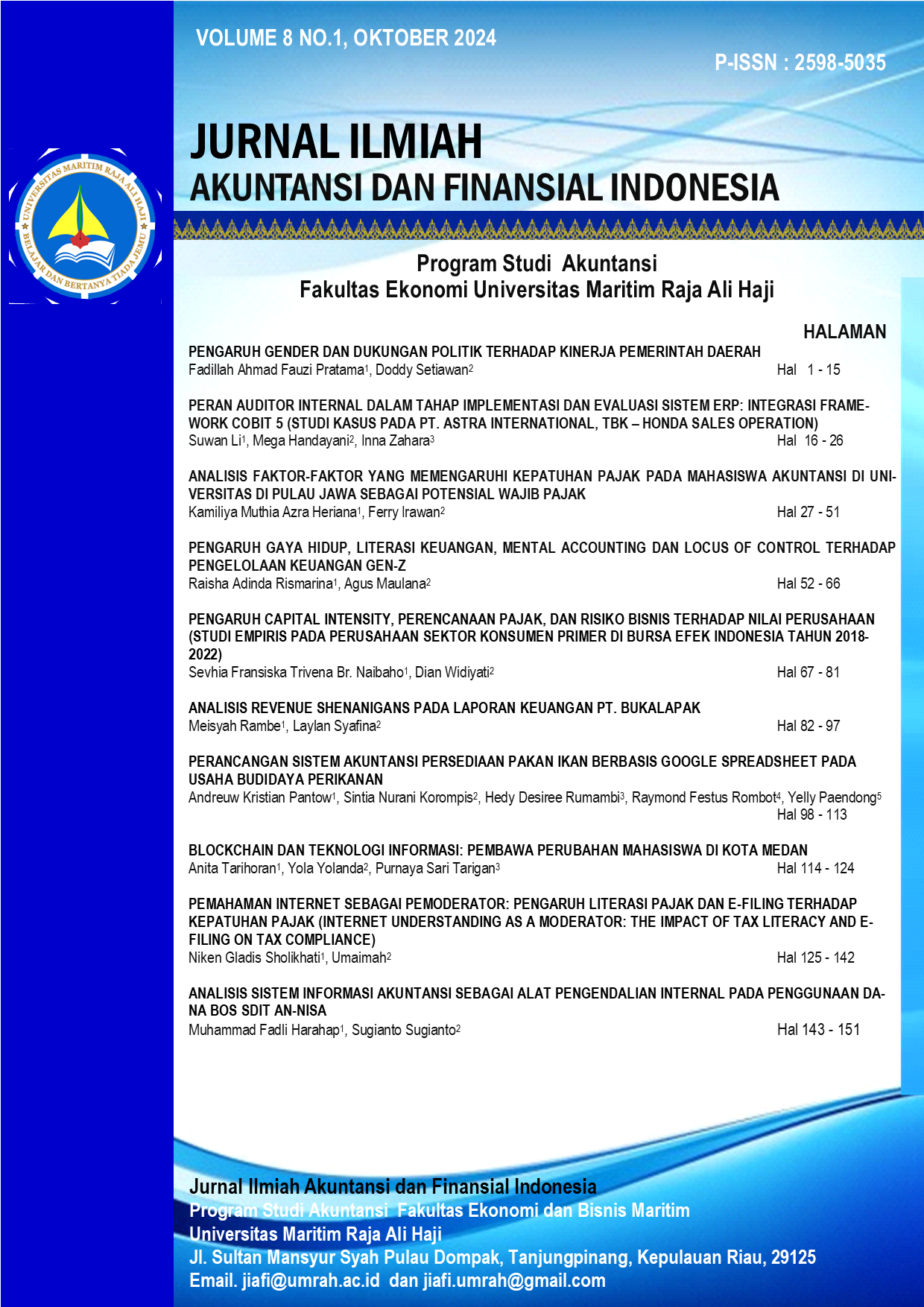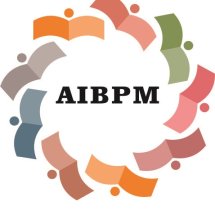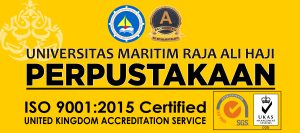Blockchain dan Teknologi Informasi: Pembawa Perubahan Mahasiswa di Kota Medan
DOI:
https://doi.org/10.31629/jiafi.v8i1.7232Keywords:
blockchain; information technology; student changeAbstract
This study aims to analyse the effect of blockchain and information technology on student change in Medan City. The population in this study was 363 students in the Accounting Study Programme at Mikroskil University. The sampling method used the Slovin formula and obtained 78 students who became research samples. The data testing method used is a quantitative method using a structural equation model with the SmartPLS 3.2.9 programme. The results showed that blockchain has no influence on student change in Medan City, while information technology is able to influence student change in Medan City.
References
Mellita, D., & Elpanso, E. (2020). Model Lewin Dalam Manajemen Perubahan: Teori Klasik Menghadapi Disrupsi Dalam Lingkungan Bisnis. MBIA p-ISSN 2086-5090, e-ISSN: 2655-8262 Vol. 19, No. 2, 142-152.
Abbas, N., Nasreen, S., & Ashiq, U. (2020). Substantial Impact of Cognitive Interpretation, Organization and Social Factors on the Effective Information Technology Usage. Review of Education, Administration & LAW, vol. 3, no. 3,, 383–394.
Alammary, A., Alhazmi, S., Almasri, M., & Gillan, S. (2019). Blockchain-based applications in education: A systematic review. Applied Sciences (Switzerland), vol. 9, no. 12.
Danach, K., Hejas, H. J., Faroukh, A., Fayyad-Kazan, H., & Moukadem, I. (2024). Assessing the Impact of Blockchain Technology on Financial Reporting and Audit Practices. Asian Business Research, Vol. 9, No. 1, 2024 ISSN 2424-8479 E-ISSN 2424-8983 , 30-50.
Ghozali, I. (2021). Partial Least Squares Konsep. Teknik dan Aplikasi Menggunakan Program SmartPls 3.2.9. Semarang: Badan Penerbit Universitas Diponegoro.
Han, H., Shiwakoti, R. K., Jarvis, R., & Mordi, C. (2023). Accounting and auditing with blockchain technology and artificial Intelligence. International Journal of Accounting Information Systems, 1-16.
Haryani, H., Wahid, S. M., Fitriani, A., & Ariq, M. F. (2023). Analisa Peluang Penerapan Teknologi Blockchain dan Gamifikasi pada Pendidikan . Jurnal MENTARI: Manajemen Pendidikan dan Teknologi Informasi, Vol.1 No.2, 163-174 .
Irwan. (2017). Etika dan Perilaku Kesehatan. Yogyakarta: Absolute Media.
Laurance, T. (2016). Blockchain for Dummies. New Jerey: John Wiley & Sons.
Muslihudin, M., & Oktafianto. (2016). Analisis dan Perancangan Sistem Informasi Menggunakan Model Terstruktur dan UML. Depok: Andi.
Purnomo, D. (2021). Pola dan Perubahan Metakognisi dalam Pemecahan Masalah Matematis. Malang: Media Nusa Creative (MNC Publishing).
Rafika, A. S., Maulani, G., & Firmansyah, F. (2022). Penerapan Digitalisasi Blockchain Pada Perguruan Tinggi Untuk Mendukung Smart University. Journal CERITA: Creative Education of Research in Information Technology and Artificial informatics, 140-152.
Rahardja, U. (2023). Penerapan Teknologi Blockchain Dalam Pendidikan Kooperatif Berbasis E-Portfolio. Technomedia Journal (TMJ), 354-363.
Saputra, M. A., Ochtaffia, D., & Apriani, D. (2023). Blockchain Applications in Education Affecting Challenges and Problems in Digital. Blockchain Frontier Technology (B-Front), Vol. 2 No. 2 , 15-23.
Setiawan, F. A. (2022). Peran Mahasiswa Dalam Membantu Adaptasi Teknologi Terhadap Guru Pada Program Kampus Mengajar 1 Di SD Pelita Bangsa Surabaya. Jurnal Pengembangan Pendidikan Dasar, 42-53.
Weli, Mukhlasin, Sjarief , J., & Madyakusumawati, S. (2024). Digital Divide and Digital Competence among Accounting Students. Jurnal Pendidikan Indonesia, 11-23.
Downloads
Published
How to Cite
Issue
Section
License
Copyright (c) 2024 Jurnal Ilmiah Akuntansi dan Finansial Indonesia

This work is licensed under a Creative Commons Attribution-NonCommercial 4.0 International License.









